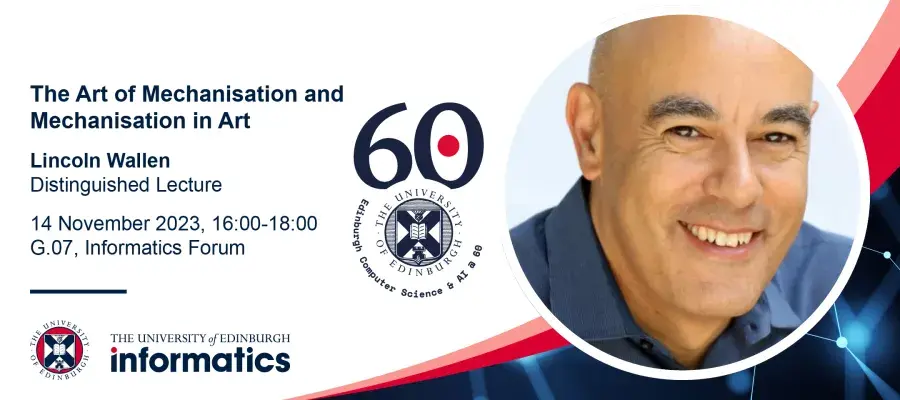Interview with Lincoln Wallen
Title: The Art of Mechanisation and Mechanisation in Art
Lecture abstract
The Scientific Revolution established new patterns of inquiry into Nature relating theory, experiment and measurement. This led to continuous development of technologies to improve measurement which, in the “enlightened” spirit of the times, were to be harnessed for “the relief of [the human] estate”. Within a century, machines, mills and factories shaped lives, the countryside, and cities. Dissenters lamented the “clouded hills” and the "evil trinity” of Bacon, Newton and Locke, intent on reducing “divine” and “human powers” to (mere) physical mechanisms: humans induced by “mind forg’d manacles” to act as machines, then replaced by machinery.
Today, all human powers, including those of the mind, seem ripe for mechanisation. Encouraged to play Turing’s “Imitation Game” with short texts, images or memes, we reliably pass the Turing test for the bot factories, the new “measure” of human social communication. With Generative AI, now surely a computer can paint a picture, write an article, make a video game or a film. After all, a computer can “calculate!”.
I will describe examples of mechanisation within the creative processes of video game development and filmmaking. I will argue that there is an art to mechanisation: designing-in specific outcomes that preserve human creative agency, with plenty of scope for machine learning technology. I will illustrate how human effort is displaced in pursuit of productivity, and the economic and educational changes these decisions bring for individuals, companies and markets.
Mechanisation in Mathematical Art was the focus for my studies in automated “deduction” in Edinburgh during the 1980’s at DAI and LFCS. I will aim to illustrate the deep connections between this and the examples given, suggesting this challenge is as old as the Scientific Revolution itself, and that careful reading of pioneers like Newton provide insight into how to mechanise in Art while preserving value and meaning.
Conclusion: by attending to the design of, and access to, the tools with which we “punch the cards,” we can preserve the poets while pursuing even “poetical science.”
Speaker's bio
Lincoln Wallen has served for over 20 years as a CTO for corporations in the media sector at every stage of commercial development — startup, growth and public — including MathEngine (physics middleware), Improbable (metaverse), Electronic Arts (video games) and DreamWorks Animation SKG (film). As CTO, Lincoln has been responsible for leading these companies, their products, creative processes and way of doing business, through major transitions in technology: computer graphics, simulation, multi-core, cloud, machine learning; and major transitions in market dynamics: physical packaged goods, digital distribution, user-generated content, web3.
Prior to his commercial career, Lincoln was Merton Fellow in Computation at St Catherine’s College Oxford, Reader in Computation at the Oxford Computing Laboratory. He served as Director for the Centre for Requirements and Foundations, the Smith Institute for Industrial Mathematics and Systems Engineering, and the London Mathematical Society/EPSRC Logic for IT Initiative. Trained as a mathematical physicist, Lincoln was a Research Fellow and Assistant in both DAI and LFCS at Edinburgh, completing his PhD in Automated Deduction under Alan Bundy.
Dr. Wallen is a non-executive director of Pearson PLC, the FTSE100 global education company, Varjo Oy, the leading enterprise VR/XR company, and the Smith Institute. Lincoln was awarded an honorary doctorate by the University of Edinburgh in 2013 for contributions to digital media.


